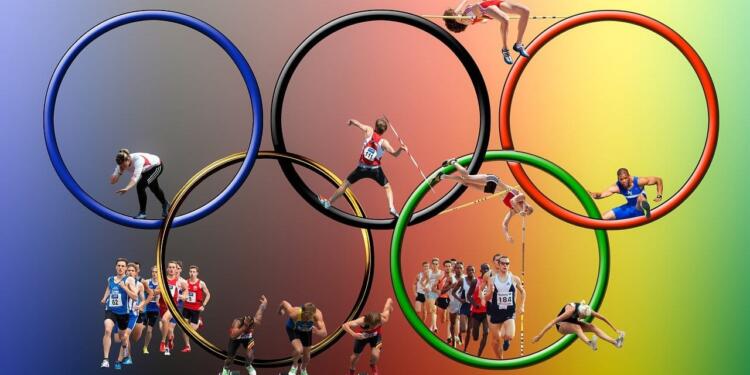After a century-long wait, Paris once again hosts the Olympic Games. The French capital has invested heavily, spending an estimated $9 billion on preparations and promotions for this prestigious event. However, the Olympics have faced numerous hurdles since their inception, casting a shadow over what should have been a triumphant return to the City of Light.
River Seine Cleanup Controversy
A significant portion of the budget, about $1.5 billion, was allocated to clean the River Seine for water events and ceremonies. President Macron and Mayor Hidalgo planned to take a public swim to demonstrate the water’s safety. This move was intended to showcase the success of the cleanup efforts and highlight the Olympics’ commitment to environmental sustainability.
However, the Seine’s long-standing pollution issues, including heavy metals and sewage contamination, have persisted. Local residents, dissatisfied with the cleanup efforts, threatened a unique and controversial protest. This culminated in a movement that captured global attention, drawing further scrutiny to the Olympics’ environmental claims and the city’s ability to deliver on its promises.
Opening Ceremony Sparks Debate
The opening ceremony, typically a family-friendly affair celebrating Olympic spirit and host nation culture, stirred significant controversy with its content. Many viewers worldwide expressed shock at the graphic nature of some segments, which seemed unrelated to sports or the Olympic ideals. The ceremony’s departure from tradition left many questioning the organizers’ decision-making process.
Consequently, the online video of the ceremony was swiftly removed due to the intense backlash. This unprecedented move highlighted the depth of public dissatisfaction and raised questions about the Olympics’ ability to unite rather than divide its global audience.
Religious Concerns and Social Media Reaction
Some religious groups voiced their disapproval of certain ceremony elements, particularly a segment they viewed as mocking their beliefs. This led to widespread criticism on social media platforms, with even high-profile figures joining the debate. The controversy expanded beyond the sporting realm, touching on sensitive cultural and religious issues.
The backlash on social media platforms was swift and severe, with the Olympics trending for all the wrong reasons. This digital firestorm put additional pressure on the organizers and highlighted the challenges of hosting a global event in the age of instant communication.
Security Issues Plague the Olympics
The Olympics have unfortunately been marred by several criminal incidents, raising concerns about the overall security measures in place. The Argentine national team experienced a robbery at their training facility, a shocking breach that left athletes feeling vulnerable in what should be a secure environment.
Even more alarmingly, Brazilian football legend Zico, 71, fell victim to theft in a Paris taxi. This incident not only affected a respected sports figure but also highlighted the potential risks faced by visitors to the Olympics. These security breaches have cast a shadow over the event, prompting calls for increased vigilance and protection for athletes and guests alike.
Environmental Efforts and Comfort Challenges
In an ambitious attempt to host eco-friendly Olympics, organizers initially opted against installing air conditioning units in many venues. Instead, they implemented an innovative water pipe system under the flooring, aiming to cool spaces more sustainably. This decision aligned with the Olympics’ broader goals of reducing its environmental impact and showcasing green technologies.
However, this decision faced significant criticism, especially in light of Europe’s recent heatwave. The comfort of athletes and spectators became a pressing concern, leading to the hasty installation of 2,500 temporary AC units to meet immediate needs. This last-minute change not only increased costs but also somewhat undermined the Olympics’ green credentials.
Adding to the challenges, the city has reportedly experienced significant power outages. These blackouts have not only inconvenienced residents and visitors but have also raised questions about Paris’s infrastructure and its readiness to host an event of this magnitude.
Paris’s Olympic Dream: Expectations vs. Reality
The Olympics were envisioned as a renaissance for Paris, a city long romanticized and considered a European icon. The games were meant to showcase the city’s enduring charm, cultural richness, and ability to host world-class events. However, the numerous challenges faced thus far have highlighted unexpected difficulties, raising questions about the city’s ability to recapture its former glory through this Olympic venture.
As the Olympics continue, all eyes remain on Paris, watching how the city navigates these obstacles and delivers on its promise of a memorable sporting spectacle. The coming weeks will be crucial in determining whether Paris can overcome these initial setbacks and truly shine as an Olympic host, or if these games will be remembered more for their controversies than their triumphs.
The world hopes that the spirit of the Olympics – celebrating athletic achievement, international cooperation, and cultural exchange – will ultimately prevail, allowing Paris to demonstrate why it has been a beloved global destination for centuries.
ALSO READ: Kanugolu’s Focus on Enhancing Hooda’s Image Instead of the Congress Party’s

























